Why it’s a great time for Canadian women to start small businesses

For Canadian women with creative ideas or the drive to pave their own path, it’s an ideal time to start small businesses.
Women business ownership in Canada is on the rise. Nearly one in five (18.4%) of small- and medium-sized Canadian businesses were majority-owned by women (PDF) in 2023 compared to 15.6% in 2017. Plus, average startup rates for Canadian women have more than doubled in the past two decades, according to the 2023/2024 Global Entrepreneurship Monitor Report. One tenth of Canadian women were starting new businesses in 2023, which is one of the highest rates among the world’s high-income countries.
We want to encourage more Canadian women to leap into entrepreneurship. While entrepreneurship is on the rise with women, they still don’t start as many businesses as men. Let’s dig into some reasons why now is a great time for Canadian women to start small businesses.
Entrepreneurship in Canada by the numbers

Business types
Women-owned companies are more concentrated in the service sector, while men-owned businesses are more commonly in the industrial sector.

Motivations
The top reasons Canadian women start businesses that are making a difference in the world and building wealth.
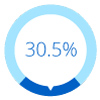
Innovation
30.5% of women-owned small- and medium- sized businesses are considered innovative, compared to 27% of men-owned businesses.
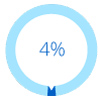
Funding
4% of venture capital in Canada is received by women, despite women owning 18.4% of businesses.
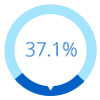
Earnings
37.1% of women entrepreneurs earn less than $50K annually compared to 31.7% of men entrepreneurs.

Stewardship
82% of women-owned startups consider environmental impacts in their business decisions.
A chance to lean into your values
For women, starting a small business can be a powerful way to live one’s values and create positive change. Many women in Canada — 56.5% to be exact — start businesses because they want to make a difference.
When women create value-driven small businesses, they can develop innovative products or services that make customers’ lives easier. Plus, they can be inspiring leaders that make meaningful change in the world. For example, 82% of women entrepreneurs consider the environmental implications of their business decisions.
Canada’s ideal for entrepreneurs
U.S. News and World Report names Canada the fourth best country in the world and the 15th-best country in which to do business. Canada has one of the strongest fiscal prospects (PDF) in the G-20, an intergovernmental forum including 19 countries and the European Union, and the G-7, a group of the world’s most advanced economies.
Compared to other countries in the G-7, Canada has a lower tax rate on new business investments, making it a very tax-competitive country. This low-tax environment has enabled many Canadian businesses to succeed. The country continues to try to attract new entrepreneurs.

Canada invests in woman entrepreneurs
Canada has provided more than 9,000 loans to women as part of its Women Entrepreneurship Strategy, which helps women-owned businesses access the financing, talent, networks, and expertise they need to start up, scale, and reach new markets.
The government also created The Women Entrepreneurship Knowledge Hub to provide resources for women entrepreneurs, such as best practices and relevant activities and events. The hub also provides access to a database of organizations that support women entrepreneurs, and it currently connects more than 300 organizations.
New opportunities abound
Nearly 12% of Canadian businesses operate in e-commerce. Online businesses offer women the opportunity to start companies with low overhead costs. At the same time, recent advances in artificial intelligence, such as automation and personalized marketing, can help women business owners streamline operations and improve customer outreach.
E-commerce is the future

Digital consumers
29 million Canadians shop online.
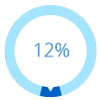
Online
Nearly 12% of Canadian retail sales are made online.
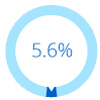
E-commerce
E-commerce sales are forecast to grow 5.6% in 2025.

Cross-border
35% of Canadian e-commerce transactions are cross-border.
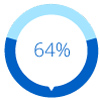
Payment preference
64% of Canadian online shoppers prefer paying with credit cards.
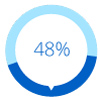
Mobile
48% of Canadian online sales occur via a smartphone or tablet.
Customers are more accessible than ever
With 5.24 billion social media users across the world, small businesses can cast a wider net than ever before. With social media, small businesses have a chance to appeal to consumers every time they log on. With an active presence, entrepreneurs can keep their products and services top of mind for when it’s time for their followers to make a purchase.
Many small businesses have built tight communities of current and future customers. And, if you’re in the business of selling products, those communities can expand much further than your local neighbourhood.
Social media also gives you a chance to provide stellar customer service so your customers come back for more. More than half (53%) of customers say the most appealing thing a brand can do on social media is to respond quickly to questions and comments.
All in all, social media is a chance to get brand recognition, whether you’re on a bare-bones budget or have some funds to funnel into your online brand.
Boosting women’s economic participation benefits everyone
Women, unfortunately, still face gender bias and systemic discrimination, which can serve as barriers to receiving finances, services, and support when launching or growing a business. Those barriers can be even more significant for women of colour, Indigenous women, women with disabilities, and those in the LGBTQ2S+ community. Despite these challenges, women have played a key role in developing new businesses, generating new jobs, and creating innovation.
Women undoubtedly deserve equitable treatment in Canada’s entrepreneurial environment. And everyone stands to benefit.
When women rise, we all rise
Women-owned businesses add $150 billion per year to the economy and employ more than 1.5 million people.
Advancing women’s equity in Canada could add as much as $150 billion to the economy by 2026.

Conclusion
If you’re thinking of opening a small business in Canada, we hope we’ve provided more than enough reasons to get started. These resources may help:
- Women Entrepreneurship Strategy
- Women Entrepreneurship Loan Fund
- WES Ecosystem Fund
- The Women Entrepreneurship Knowledge Hub
- Scotiabank Women Initiative
Also, check out these directories to support Canada’s woman entrepreneurs.
- Centre for Women in Business Member Directory
- The Canadian Association for Women in Business Network Directory
- #BeTheDrum Indigenous Women’s Business Directory
- Femmebought Toronto Business Directory
Now is a great time to take the leap into entrepreneurship!